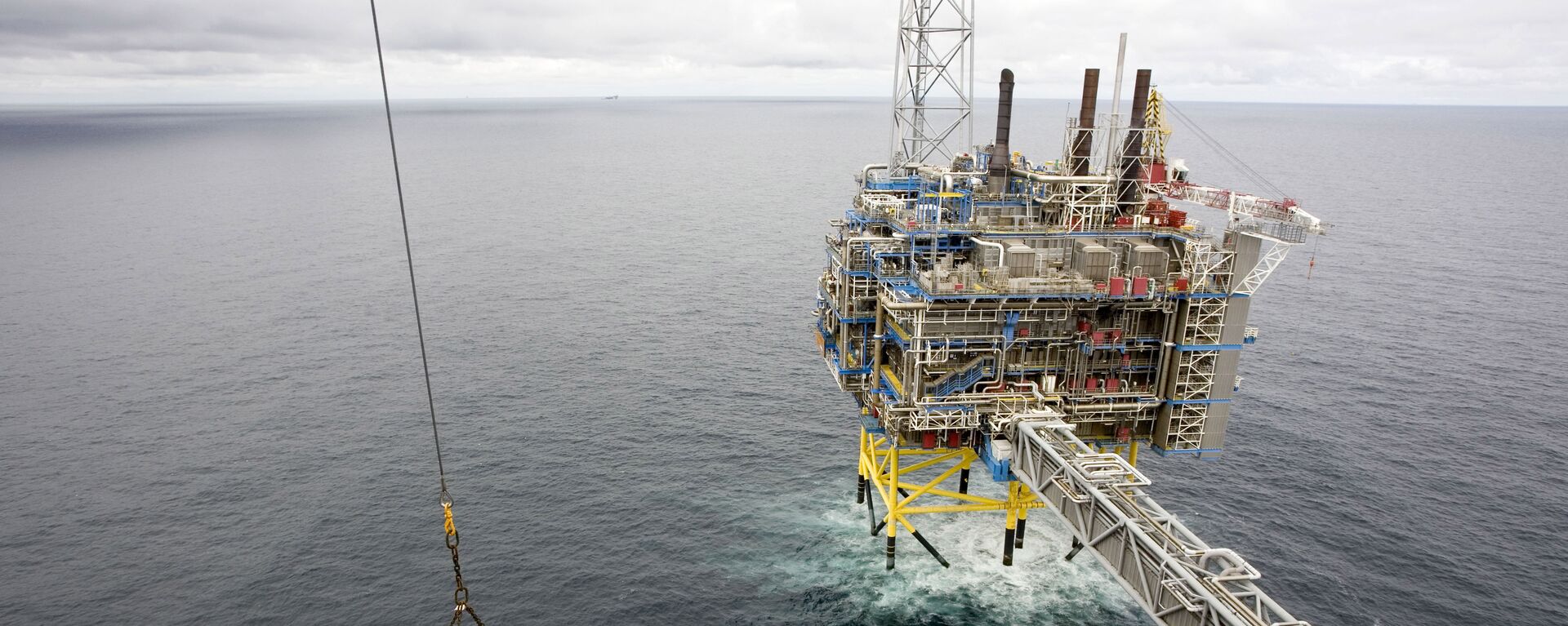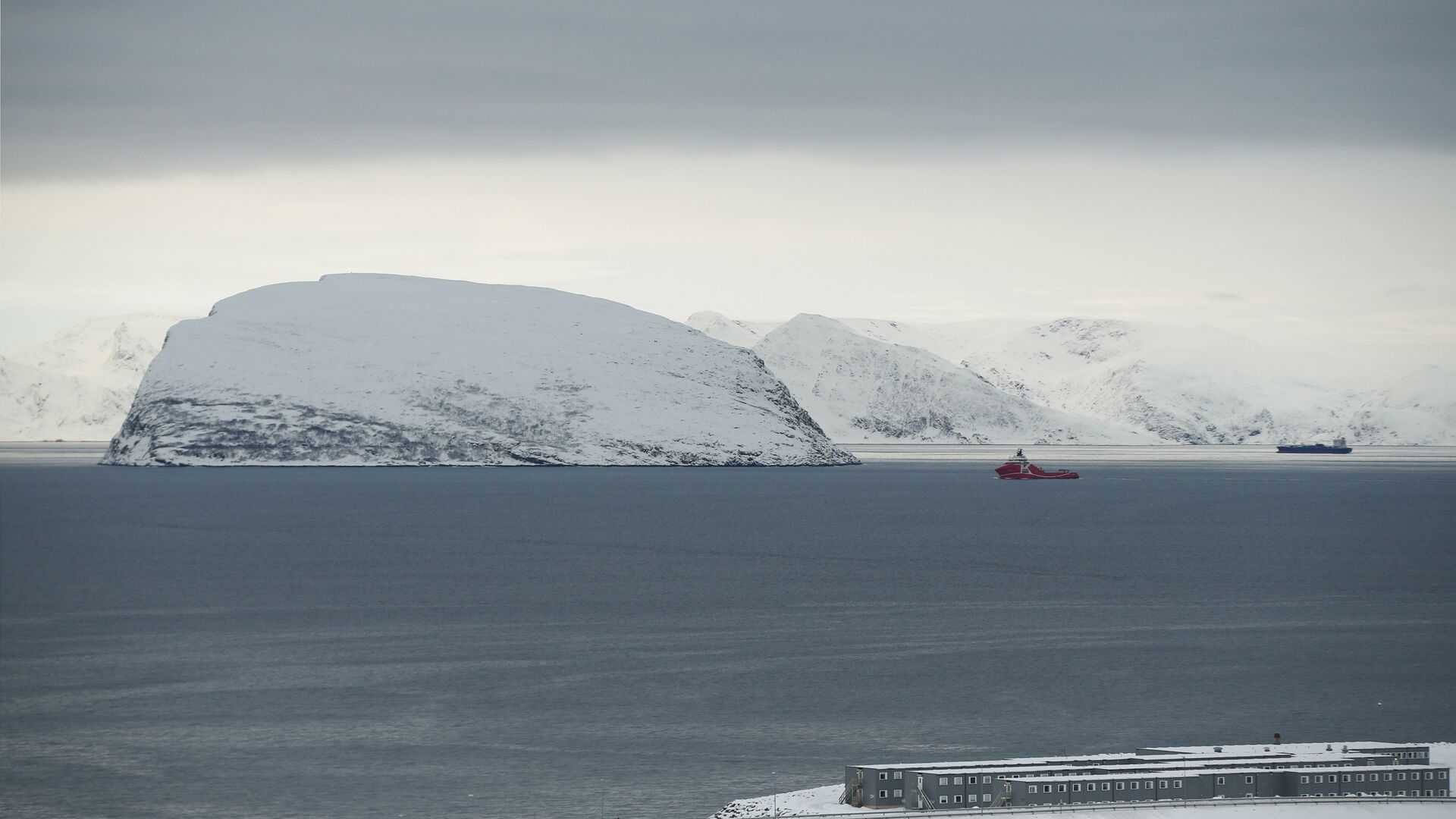https://sputnikglobe.com/20221205/norway-forks-out-to-secure-subsea-cables-in-lucrative-oil-and-gas-industry-1105039525.html
Norway Forks Out to Secure Subsea Cables in Lucrative Oil and Gas Industry
Norway Forks Out to Secure Subsea Cables in Lucrative Oil and Gas Industry
Sputnik International
After several rounds of backfiring sanctions against Russian energy by Brussels, Norway became Europe's number one gas supplier, replacing Moscow. The windfall... 05.12.2022, Sputnik International
2022-12-05T07:28+0000
2022-12-05T07:28+0000
2023-02-10T09:03+0000
world
scandinavia
norway
news
security
maritime security
cybersecurity
https://cdn1.img.sputnikglobe.com/img/105155/38/1051553869_0:268:5089:3131_1920x0_80_0_0_18f34b0a72c6e2f39a33e6de0075baf2.jpg
The Norwegian government has allotted funds to secure submarine cables that play a key role in the country’s vital oil and gas industry. According to Municipalities Minister Sigbjorn Gjelsvik, this measure will boost security on the Norwegian continental shelf, both protecting telecom services and preventing possible threats.The NOK 43Mln ($4.4Mln) package to reinforce defense of the undersea information infrastructure comes in the wake of explosions on the Nord Stream 1 and 2 pipelines, a critical rupture that has since been deemed an act of sabotage. The Kremlin called it an “unprecedented act of state terrorism” by the West. The Russian Ministry of Defense subsequently said that UK Navy took part in the planning, organization and execution of the Nord Stream attack.When taken with the flurry of drone sightings off Norway's shore, the recent explosions raised concerns about the safety of the country’s critical oil and gas infrastructure, with authorities and operators scrambling to strengthen energy assets' security.Measures in the works include creating no-fly offshore zones, granting private security providers on oil rigs the right to use force, and high-tech solutions such as “geofencing” oil and gas platforms.However, critics stressed that the security package only applies to the oil and gas industry, ignoring other areas of one of the most digitized countries in the world. For instance, they argue, the package completely ignores cables previously cut in the northern part of the country, or the critical cables that link the Arctic archipelago of Svalbard to mainland Norway.In 2021, a 4km cable weighing 10 tons and some 200 meters underwater - outside the Vesteralen archipelago about 30km from land - disappeared without trace, sparking all sorts of theories ranging from the usual “the Russians did it” to sea monsters and giant squid. The cable was later found 11km away. The police concluded that it was an “innocent” fishing vessel that had wrenched the cable loose.Gjelsvik stressed that outside the oil and gas industry, businesses are responsible for ensuring that the demands of the authorities are fulfilled. He added that some of them previously received subsidies for this, including Space Norway, which owns and manages the Svalbard cable.After several rounds of self-harming EU sanctions against Russian energy, Norway became Europe's number one gas supplier, replacing Moscow. It said it expected its oil and liquids production to rise 15 percent in 2023 thanks to new offshore extraction projects, and natural gas production in Norway is expected to rise 8 percent in 2022 as demand rockets while EU nations scramble to fuel their power plants and keep the lights on.The vast revenues which have resulted from Europe's worst energy crisis in decades - which is largely self-inflicted - have sparked accusations of profiteering against Oslo from fellow European nations, including Poland and Germany.
https://sputnikglobe.com/20221007/norway-expecting-record-oil-and-gas-revenues-in-2023-amid-eus-energy-drought-1101591976.html
scandinavia
norway
Sputnik International
feedback@sputniknews.com
+74956456601
MIA „Rossiya Segodnya“
2022
News
en_EN
Sputnik International
feedback@sputniknews.com
+74956456601
MIA „Rossiya Segodnya“
Sputnik International
feedback@sputniknews.com
+74956456601
MIA „Rossiya Segodnya“
norway's oil and gas industry, subsea cables, underwater cables, drone sightings, nord stream explosions, state terrorism, maritime security
norway's oil and gas industry, subsea cables, underwater cables, drone sightings, nord stream explosions, state terrorism, maritime security
Norway Forks Out to Secure Subsea Cables in Lucrative Oil and Gas Industry
07:28 GMT 05.12.2022 (Updated: 09:03 GMT 10.02.2023) After several rounds of backfiring sanctions against Russian energy by Brussels, Norway became Europe's number one gas supplier, replacing Moscow. The windfall revenues result from Europe's largely self-inflicted energy crisis, which has proved the worst in decades, have sparked accusations of profiteering against Oslo from other European nations.
The Norwegian government has allotted funds to secure submarine cables that play a key role in the country’s vital oil and gas industry.
According to Municipalities Minister Sigbjorn Gjelsvik, this measure will boost security on the Norwegian continental shelf, both protecting telecom services and preventing possible threats.
“Sea fiber cables support Norwegian gas production, and this is the background for the additional funding”, Gjelsvik said in a statement.
The NOK 43Mln ($4.4Mln) package to reinforce defense of the undersea information infrastructure comes in the wake of explosions on the Nord Stream 1 and 2 pipelines, a critical rupture that has since been deemed an act of sabotage. The Kremlin called it an “unprecedented act of state terrorism” by the West. The Russian Ministry of Defense subsequently said that UK Navy took part in the planning, organization and execution of the Nord Stream attack.
When taken with the flurry of drone sightings off Norway's shore, the recent explosions raised concerns about the safety of the country’s critical oil and gas infrastructure, with authorities and operators scrambling to strengthen energy assets' security.
Measures in the works include creating no-fly offshore zones, granting private security providers on oil rigs the right to use force, and high-tech solutions such as “geofencing” oil and gas platforms.
However, critics stressed that the security package only applies to the oil and gas industry, ignoring other areas of one of the most digitized countries in the world. For instance, they argue, the package completely ignores cables previously cut in the northern part of the country, or the critical cables that link the Arctic archipelago of Svalbard to mainland Norway.
In 2021, a 4km cable weighing 10 tons and some 200 meters underwater - outside the Vesteralen archipelago about 30km from land - disappeared without trace, sparking all sorts of theories ranging from the usual “the Russians did it” to
sea monsters and giant squid. The cable was later found 11km away. The police concluded that it was an “innocent” fishing vessel that had wrenched the cable loose.
Gjelsvik stressed that outside the oil and gas industry, businesses are responsible for ensuring that the demands of the authorities are fulfilled. He added that some of them previously received subsidies for this, including Space Norway, which owns and manages the Svalbard cable.

7 October 2022, 05:30 GMT
After several rounds of self-harming EU sanctions against Russian energy, Norway became Europe's number one gas supplier, replacing Moscow. It said it expected its oil and liquids production to rise 15 percent in 2023 thanks to new offshore extraction projects, and natural gas production in Norway is expected to rise 8 percent in 2022 as demand rockets while EU nations scramble to fuel their power plants and keep the lights on.
The vast revenues which have resulted from Europe's worst energy crisis in decades - which is largely self-inflicted - have sparked accusations of profiteering against Oslo from fellow European nations, including Poland and Germany.



